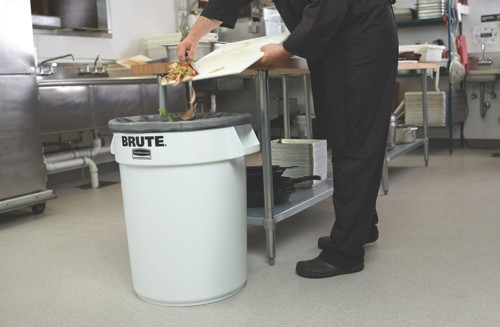
LEGISLATION LEADS THE WAY
The UK generates more food waste than any other country in Europe1, so in an effort to significantly reduce food waste new measures are coming into force this year, which could have a huge impact on your hospitality business.
The UK Environment Act was actually passed back in 2021 but is coming into effect this year. The Act is committing to eliminate food waste from landfill by 2030 with a specific push on businesses. The hospitality sector has a particularly long way to go as one of the top producing sectors of food waste. Every year food waste costs the sector £3.2 billion and an estimated 75% of that food wasted could have been avoided2. But how can hospitality see this as an opportunity to reap both environmental and economic benefits?
A WORLD OF WASTE
According to a study by the UN a third of the world’s food produced is wasted3 which equates to around $984 billion in losses4. Not only is this shocking when considering the millions of people across the world who go hungry on a daily basis but the impacts on our planet are also catastrophic. When food biodegrades it releases methane, a greenhouse gas more potent than carbon dioxide at trapping heat in the atmosphere. In order to understand the scale of the problem think of it like this: if food waste were a country, it would be the third largest emitter of greenhouse gases after China and the USA5.
Where there is waste, there is a cost and aside from the devastating cost to the environment the economic impact associated with food waste is astronomical. The global hospitality industry alone sees costs of $100 billion every year from food waste6 – so what could it be costing your business?
RECYCLING THE RIGHT WAY
Prevention is the ideal scenario but for hotels and restaurants it’s not always that simple. For one, it requires guests to think about the potential waste when ordering, of which venues have little control. What they do have control over, however, is how to deal with the subsequent waste.
According to WRAP, for every £1 invested in food waste management, an organisation stands to make £14 in savings7. With the right food waste management solutions and procedures in place businesses can save on transportation costs and business landfill taxes. It’s clear that investing in proper food waste management is simply good for your budget. While it’s true that decreasing the weight of waste will decrease the costs associated with collection costs, food waste is actually up to five times cheaper to dispose of per kilogram than general waste8. By introducing a food waste stream into your recycling set-up, you can save money, as well as improve your green credentials.
RECYLING STATIONS TO HELP YOU BUY BETTER, WASTE LESS
Thanks to the likes of WRAP’s Hospitality and Food Service Agreement it’s fair to say that food waste has moved up the agenda in recent years, and with consumer expectations on the rise as well as costs, it’s time for your venue to take action against food waste. Investing in durable food waste solutions is a simple step that will see your business reap economic and environmental rewards.
If you’re looking for durable waste solutions to do the hard work back of house, then opt for the Slim Jim®Vented, which comes with a 10-year warranty. With a small footprint, the container fits seamlessly into a busy kitchen and comes with venting channels that make removing lines up to 80% easier, helping to prevent injury to operatives.
Encourage front-of-house food waste recycling with Configure™ Recycling Stations which come with a 5-year warranty. With a modern, premium finish these won’t look out of place in any high-end hospitality venue and are sure to exceed user expectations while making disposal of waste easy.
The key is to invest in products that stand the test of time. When deciding on waste solutions prioritising durability will mean avoiding frequent replacement of cheaper but more unreliable products. This will save you time, worry and of course money!
Share on Social Media